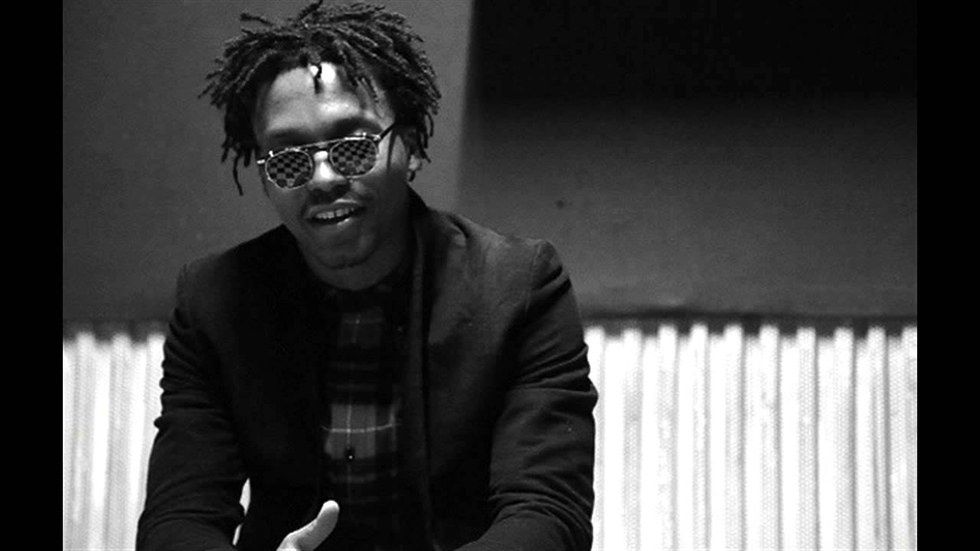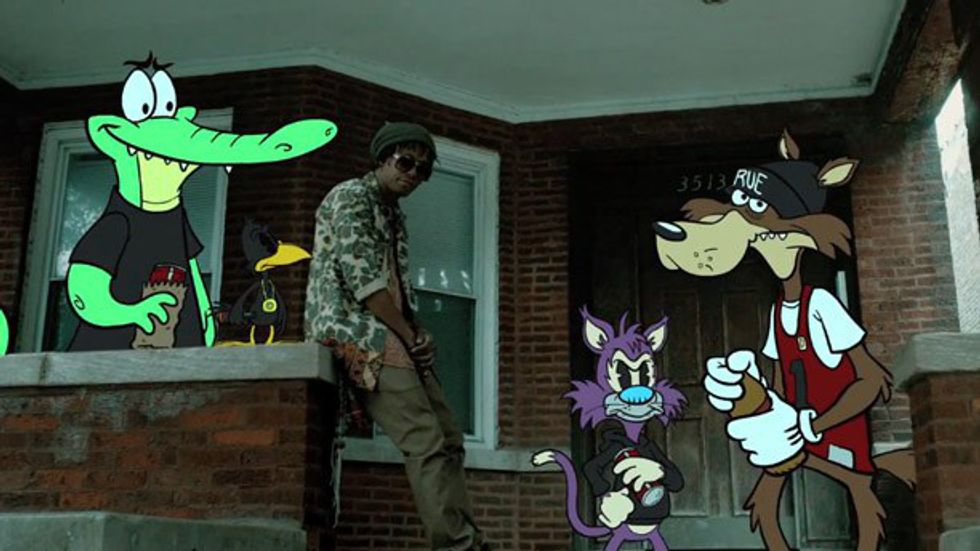Anyone who’s ever heard Young Thug’s infamous ‘Lifestyle’ verse knows that rappers do not have to be lyrical geniuses to make a hit song. Indeed, it seems like it’s pretty much acceptable for rappers to say whatever they want as long as it kinda rhymes. Even the greats have their fair share of awful bars; over the years, we’ve heard the Wu-Tang Clan struggle with counting to four, “I wish I had a chance to say these three words/ after laughter comes tears,” J-Cole brag about his flatulence, “I let you feel like the shit/ but boy you can’t out-fart me,” and Kanye gets mad about French pastries, “In a French-ass restaurant/ hurry up with my damn croissants/ I am a god.” Given the abundance of terrible lines in rap songs, one could easily write the genre off as essentially being a collection of loosely related puns about butts “She got a big booty/ So I call her Big Booty”- 2 Chainz.
Enter Lupe Fiasco. Most music fans know of the Chicago-born rapper for his hits; songs like the beautiful “Kick Push,” uplifting “The Show Goes On” or the haunting “Superstar” set the stage for Lu to take his place as one of hip-hop's brightest stars. Instead, Lupe opted for the road less travelled. His politically conscious brand of rap might not be the most radio friendly, but it has provided the world with some of the best lyrics ever written.
Let’s start with one of Lupe’s simpler bars: “Disclaimer: This rhymer/ Lupe’s/ not using ‘bitch’ as a lesson/ but as a psychological weapon/ to set in your mind and really mess with your conceptions/ discretions/ reflections/ its clever misdirection”- Bitch Bad.
This bar comes off of Lupe’s 2012 single “Bitch Bad.” Over the course of this song Fiasco traces the narrative of two children, a boy and a girl, as they encounter the word ‘bitch’ in rap music. The boy relates the word to his mother while the girl embraces the ‘bad bitch’ identity created by rappers. This song could easily be written off as a preachy warning against how women are treated in rap music, however, lines like this encourage listeners to look past the simple narrative the first two verses tell. The third verse continues to complicate Lupe’s initial argument by using the characters from the first two verses to comment on larger gender norms in our society, focusing on misrepresentation of women. Probably the biggest critique of “Bitch Bad,” as well as the entire album it appeared on, was how little room for interpretation or speculation there was. Luckily for us, Lupe also has plenty of beautiful, abstract lines to look at.
Like balls from Galileo to law low/ Ignorance that the worlds isn’t ours, the gall/ give them all showers/ Tony found the fountain of youth in the mountain of powder/ only to find truth in the fountain, drowning in power/ surrounded with dollars –They. Resurrect. Over. New.
Let’s be honest; at first glance this looks like total gibberish. Look a little closer, however, and you begin to get an idea of what Lupe’s trying to convey. The easiest connection to make here is between Galileo and lay low: Galileo faced persecution because his theories contradicted the Bible, thus he was championing the idea that humans, not God, were the most powerful force on Earth. Lu then goes on to reference the end of Scarface, when Tony Montana is killed and falls into a fountain that reads ‘The World is Yours.’ Both of these men did great things (great in terms of impact, not necessarily in terms of goodness) only to be struck down by society, thus creating a narrative on the power of large groups of people, and implying that the world belongs to the majority, not any individual. You can interpret these lines however you want; I, however, see a critique of the competition and selfishness we see in modern society.
Cash rules everything around these n*****/ as classrooms everywhere around me wither/ hither you can be Mr. Burns or Mr. Smithers/ The tyrant or the slave but no-where in the middle/ of the extremes of America’s dream/ Freud fighting Neo, Freddy Krueger refereeing –Around My Way
This entire song is full of absolutely wonderful lines, but this final set has to take the cake. This critique of the American Dream is wonderfully done; Lupe somehow manages to comment on social injustice in the way only he can, while simultaneously referencing the Wu-Tang Clan, The Simpsons, Freud, The Matrix and A Nightmare on Elm Street without losing his own narrative. Ultimately, Lupe is commenting on the battle between human nature (Freud) and conscious thought (Neo) that creates the cutthroat world we see today.
Then shout outs to my inner demon that be creepin’ around my temple/ ready to set me off like Vivica/ or make me cross like a crucifix/ or like the legs of a Buddhist sitter deep in thought/ thinking as deep as the sea of salt/ and they sink in the same sea that we walk/ Not that we Jesus, we just don’t wait until it thaws –Form Follows Function
OK, bear with me and we’ll get through this one. Lupe begins building his message about the importance of thought by referencing the 1996 movie Set It Off in which Vivica A. Fox robs a bank to confront personal issues (inner demons), the same personal issues that can make Lupe cross (angry). Lu then uses ‘cross’ to create a comparison between Christianity/ the West (the cross) and Buddhism (crossed legs of a meditator). Lupe then extends the biblical imagery by incorporating the Dead Sea (sea of salt), which is incredibly deep and buoyant. This buoyancy is enough to keep the thoughts of normal people floating on top, while the heavy thoughts of a meditating monk can sink to the bottom. Finally, Lupe concludes his metaphor by clarifying that the lighter thoughts are not enlightened (like Jesus), but rather that we are either too impatient or afraid to try and sink, and instead step cautiously on ice. I interoperate these bars to encourage deep thinking, as well as challenging your own assumptions of the world (break the ice and sink).
These are just four examples, and they really only showcase one particular element of Lupe’s vocal skills. The first verse of ‘Switch,’ for example, showcases his impressive technical skill, ‘Words I Never Said’ presents Lupe’s raw anger with the way things are, and ‘Hip Hop Saved My Life’ is some of the best lyrical storytelling in music today. To be fair Lupe has plenty of bad music (pretty much all of Lasers), but he really is worth listening to. Or, of course, you could go back to listening to Nicki Minaj saying things like When I was a geisha, he was a samurai/Somehow I understood him when he spoke Thai. Wrong language, Nicki.


























